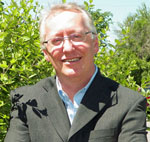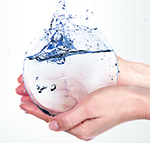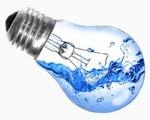 |
||||||||||||||||||||||
| Subscribe | Past Issues | www.cwwa.ca | Water Source Magazine | ||||||||||||||||||||||
|
CWWA News
Naturally, as the year comes to an end, we look back at what went on in our world of water and what we accomplished as a national association. I was writing one of my quarterly reports for the board and our partner associations and thought, “for a fairly uneventful year, there was a lot going on at CWWA.”
CWWA’s Water and Energy Efficiency Committee has had a busy year. The Committee, along with our Wastwater and Stormwater Committee, completed an Issues Analysis Paper on Food Waste Grinders that analyzed the impacts of these devices on the water system, from increased water demand, energy demand and the impacts on the collection and wastewater treatment system. The Paper will be ready to share in the new year.
Federal Initiatives
Earlier this year NPRI issued an early engagement document consulting on changes to reporting to the NPRI of discharges to water. These changes would have seen all sectors move to a discharge based reporting threshold, reporting on BOD and COD and requirements for reporting on all NPRI substances regardless of discharge thresholds. The reviewed National Pollutant Release Inventory (NPRI) data for 2017 was released on December 6, 2018. The reviewed data is available on the Government of Canada’s website in multiple formats along with the 2017 Data Highlights and an innovative new series called “NPRI Sector Overview” as targeted data products. The 2018-19 series will consist of five industry-specific factsheets, which will promote NPRI data and innovation in environment. Water Canada Building on the momentum from Canada’s G7 presidency, federal, provincial, and territorial environment ministers agreed to push forward on a Canada-wide zero-plastic-waste strategy. The strategy outlines a vision to keep plastics in the economy and out of the environment through solutions to better prevent, reduce, reuse, and clean up plastic waste
With the increased membership in the Water Efficiency Committee, CWWA is creating a new separate committee on Energy Efficiency. This is an incredibly important subject, as it impacts so many aspects of water utility operations and management. Energy consumption and efficiency has huge impacts of utility costs, managing consumption and implementing green energy solutions also helps reduce carbon emissions. Member News
CWWA, as a key signatory to National Joint Statement on Climate Change is pleased to share a new report from Simon Fraser University that calls for governments to combine emission reduction and climate adaptation strategies and outlines practices that can help reduce extreme climate impacts.
CWWA member Barry Orr from the City of London and representing the Municipal Enforcement Sewer Use Group (MESUG) along with Fatih Karadagli an associate professor of environmental engineering at Sakarya University, Turkey have submitted a report to the Canadian Department of Fisheries and Oceans regarding the effects of flushable products on wastewater infrastructure and aquatic environments. Snippings & Clippings
Water Online Water utilities in Michigan are suing the state over the implementation of the toughest lead rules in the country Water Canada With medical marijuana legal for five years and the door opening to recreational use on October 17, 2018, Canada’s cannabis growers are learning to navigate their crop’s demanding water footprint. Water Canada Canada research chair Mark Servos has been appointed a 2018 Fellow of the Society of Environmental Toxicology and Chemistry (SETAC), in recognition of his research contributions, as well as his SETAC leadership and service. In addition to being named a fellow, Servos will become an advisor to the SETAC World Council. IWA Publishing Placing a jar of faeces on a pedestal next to him, philanthropist Bill Gates made a plea Tuesday for the safe disposal of human waste as he kicked off the “Reinvented Toilet” Expo in China. “You might guess what’s in this beaker — and you’d be right. Human faeces,” the former CEO of software giant Microsoft said. “This small amount of faeces could contain as many as 200 trillion rotavirus cells, 20 billion Shigella bacteria, and 100,000 parasitic worm eggs.” Water Canada A successful business has management and staff that constantly look for ways to make money and ways to save money. When it comes to managing wastewater generated by a business, ways of saving money may flip into ways of making money. Algoma Orchards, located near the Town of Newcastle, Ontario, has already started this process. |
||||||||||||||||||||||






